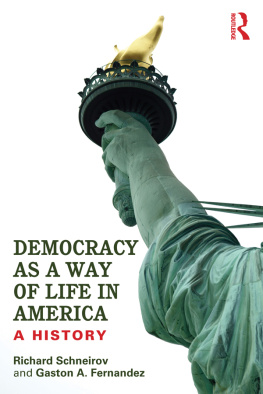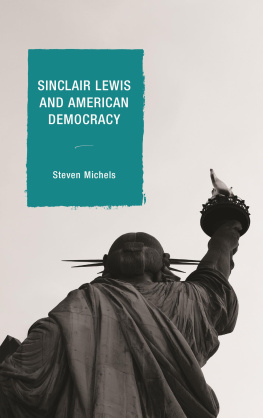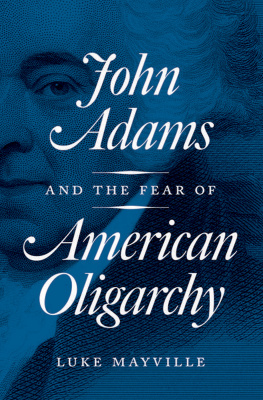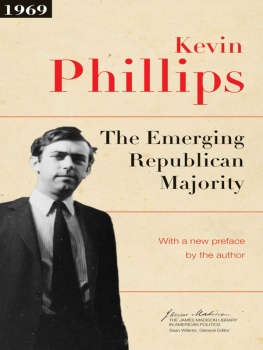Kevin Phillips - Wealth and Democracy: A Political History of the American Rich
Here you can read online Kevin Phillips - Wealth and Democracy: A Political History of the American Rich full text of the book (entire story) in english for free. Download pdf and epub, get meaning, cover and reviews about this ebook. year: 2003, publisher: Broadway Books, genre: Politics. Description of the work, (preface) as well as reviews are available. Best literature library LitArk.com created for fans of good reading and offers a wide selection of genres:
Romance novel
Science fiction
Adventure
Detective
Science
History
Home and family
Prose
Art
Politics
Computer
Non-fiction
Religion
Business
Children
Humor
Choose a favorite category and find really read worthwhile books. Enjoy immersion in the world of imagination, feel the emotions of the characters or learn something new for yourself, make an fascinating discovery.

- Book:Wealth and Democracy: A Political History of the American Rich
- Author:
- Publisher:Broadway Books
- Genre:
- Year:2003
- Rating:4 / 5
- Favourites:Add to favourites
- Your mark:
- 80
- 1
- 2
- 3
- 4
- 5
Wealth and Democracy: A Political History of the American Rich: summary, description and annotation
We offer to read an annotation, description, summary or preface (depends on what the author of the book "Wealth and Democracy: A Political History of the American Rich" wrote himself). If you haven't found the necessary information about the book — write in the comments, we will try to find it.
Kevin Phillips: author's other books
Who wrote Wealth and Democracy: A Political History of the American Rich? Find out the surname, the name of the author of the book and a list of all author's works by series.
Wealth and Democracy: A Political History of the American Rich — read online for free the complete book (whole text) full work
Below is the text of the book, divided by pages. System saving the place of the last page read, allows you to conveniently read the book "Wealth and Democracy: A Political History of the American Rich" online for free, without having to search again every time where you left off. Put a bookmark, and you can go to the page where you finished reading at any time.
Font size:
Interval:
Bookmark:
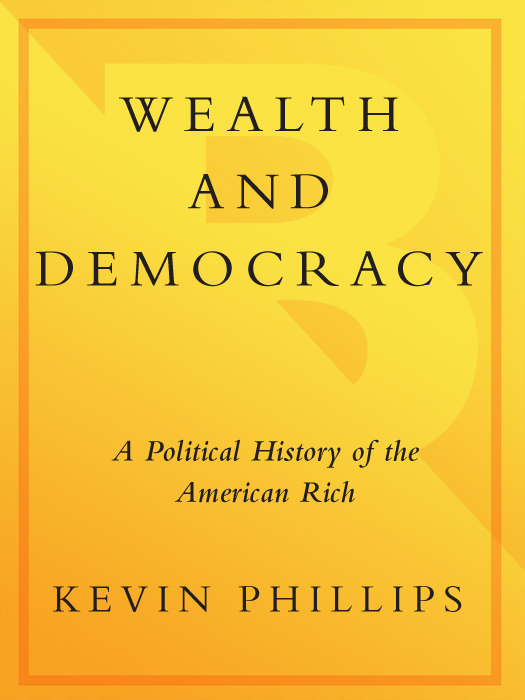
ALSO BY KEVIN PHILLIPS
T HE C OUSINS W ARS (1999)
A RROGANT C APITAL (1994)
B OILING P OINT (1993)
T HE P OLITICS OF R ICH AND P OOR (1990)
S TAYING ON T OP (1984)
P OST -C ONSERVATIVE A MERICA (1982)
M EDIACRACY (1974)
T HE E MERGING R EPUBLICAN M AJORITY (1969)
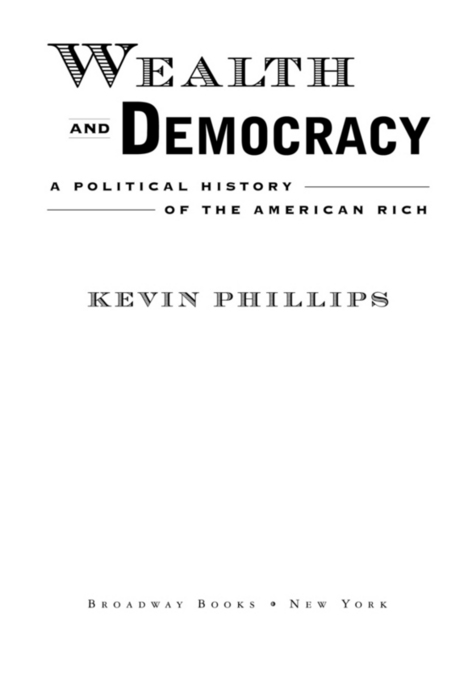

WEALTH AND DEMOCRACY. Copyright 2002 by Kevin Phillips.
All rights reserved. No part of this book may be reproduced or transmitted in any form or by any means, electronic or mechanical, including photocopying, recording, or by any information storage and retrieval system, without written permission from the publisher. For information, address Broadway Books, a division of Random House, Inc., 1540 Broadway, New York, NY 10036.
BROADWAY BOOKS and its logo, a letter B bisected on the diagonal, are trademarks of Broadway Books, a division of Random House, Inc.
Visit our website at www.broadway.com
Charts and graphs by Mark Stein Studios
Library of Congress Cataloging-in-Publication Data
Phillips, Kevin P.
Wealth and democracy: the politics of the American rich/Kevin Phillips.1st ed.
p. cm.
1. WealthUnited States. 2. Political corruptionUnited States.
3. Representative government and representationUnited States.
4. United StatesPolitics and government. I. Title.
HC110.W4 P484 2002
305.52340973dc21
2001052656
eISBN: 978-0-7679-1151-1
v3.1
THE GREAT WAVES OF AMERICAN WEALTH
THE ORIGINS, EVOLUTIONS, AND ENGINES OF WEALTH:
Government, Global Leadership, and Technology
WEALTH AND DEMOCRACY:
The Rhythm of Politics and Confrontation
THINKING AHEAD
For every city {state}, however small, is in fact, divided into two, one the city of the poor, the other of the rich; these are at war with one another.
Plato, The Republic IV
Thus, it is manifest that the best political community is formed by citizens of the middle class, and that those states are likely to be well-administered in which the middle class is larger, and stronger, if possible, than both other classes.
Aristotle, Politics, Book IV,
Chapter 11
The only thing new in the world is the history that you dont know.
President Harry S. Truman
T he genesis of this book over the last decade is twofold. In part, it grew out of the great interest in the topic of my 1990 book, The Politics of Rich and Poor, but other roots lay in my increasing turn to history, not least economic history, during the 1990s. It is hard to imagine that the excesses bred in that decadethe technology mania and bubble, the money culture, the belief that economic cycles were over, the policies of market extremism, corruption, and a politics ruled by campaign contributionscould have developed so destructively if so much knowledge of the past had not slipped away in stock market and new era triumphalism.
As previous periods of excess crested or crashed, books emerged to flesh out the historical context of wealth and its wayward pursuit. Gustavus Myers published The History of the Great American Fortunes just as the Gilded Age was ending under the whip of Theodore Roosevelt and the Progressive Movement. Matthew Josephson published The Robber Barons in 1934, just when mid-depression Americans were blaming another generation of commercial and financial leaders for the speculative bubble and crash of 1929. This book was begun in 1999 for much the same purpose: to inform public understanding and aspirations to reform with a sweep of historythe history of wealth, democracy, and their tensionsthat goes back to 1776 and before. The stock market mania, the technology bubble, and Enron all have precedents aplenty.
Obviously, these points are easier to make in 2002 than in 1999. In 1999, with the stock indexes reaching for the moon and upscale consumer spending surges correlating with major Nasdaq rallies, history seemed on hold. In January 2000, with the first stages of the crash just weeks away, the movement to draft Ralph Nader to run for presidentnot, admittedly, a mainstream crowdheld a rally at Washingtons Lincoln Memorial at which they read from a letter of November 21, 1864, alledgedly written by Abraham Lincoln. Looking beyond the war, he said, I see in the near future a crisis approaching that unnerves me and causes me to tremble for the safety of my country. As a result of the war, corporations have been enthroned, and an era of corruption in high places will follow, and the money power of the country will endeavor to prolong its reign by working upon the prejudices of the people until all wealth is aggregated in a few hands and the Republic is destroyed. I feel at this moment more anxiety for the safety of my country than ever before, even in the midst of war. Amid the excitement of the rising Nasdaq, hardly anyone paid attention.
Many scholars doubt the genuineness of this letter, and it is a very blunt statement of sentiments that our sixteenth president usually expressed with more restraint. My point, though, is that such viewpointswhich now get one read out of the Republican Partyhave a surprising and distinguished history within them. When Theodore Roosevelt was in the White House, his attacks on corporations far exceeded Lincolns; and at one point, TR specifically repeated and endorsed Lincolns oft-quoted remarks about labor being superior to and more deserving of support than capital.
Some of this GOP skepticism lingered on in the years of Eisenhower and Nixon. Back in 1990, when I published The Politics of Rich and Poor, some of its success was owed to the two lead endorsements on the back of the book jacket. One was from New York Governor Mario Cuomo, then widely expected to be the 1992 Democratic presidential nominee. The second was from former President Richard Nixon, who gave it with full knowledge that the book was critical of the Reagan and Bush administrations for favoring the rich. Nixons streetcar-worker father had left Ohio for California after getting a name as labor agitator, and he thereafter interrupted his McKinley Republicanism to support third-party progressives like Theodore Roosevelt in 1912 and Robert La Follette in 1924. As president, Nixon himself supported national health insurance, income maintenance for the poor, and higher taxation of unearned than earned income. The 1972 Republican platform actually criticized multinational corporations for building plants overseas to take advantage of cheap labor.
Because my own background is Republican, and I now know much more of GOP history on these subjects, it is hard to avoid the conclusion that the Republican economic policies and biases of the 1990s and early 2000s are a narrow-gauge betrayal of the legacy of the two greatest Republican presidents, Lincoln and Teddy Roosevelt. But that is a debate I will leave to the elections.
Kevin Phillips
West Goshen, Connecticut
January 2002
Font size:
Interval:
Bookmark:
Similar books «Wealth and Democracy: A Political History of the American Rich»
Look at similar books to Wealth and Democracy: A Political History of the American Rich. We have selected literature similar in name and meaning in the hope of providing readers with more options to find new, interesting, not yet read works.
Discussion, reviews of the book Wealth and Democracy: A Political History of the American Rich and just readers' own opinions. Leave your comments, write what you think about the work, its meaning or the main characters. Specify what exactly you liked and what you didn't like, and why you think so.

